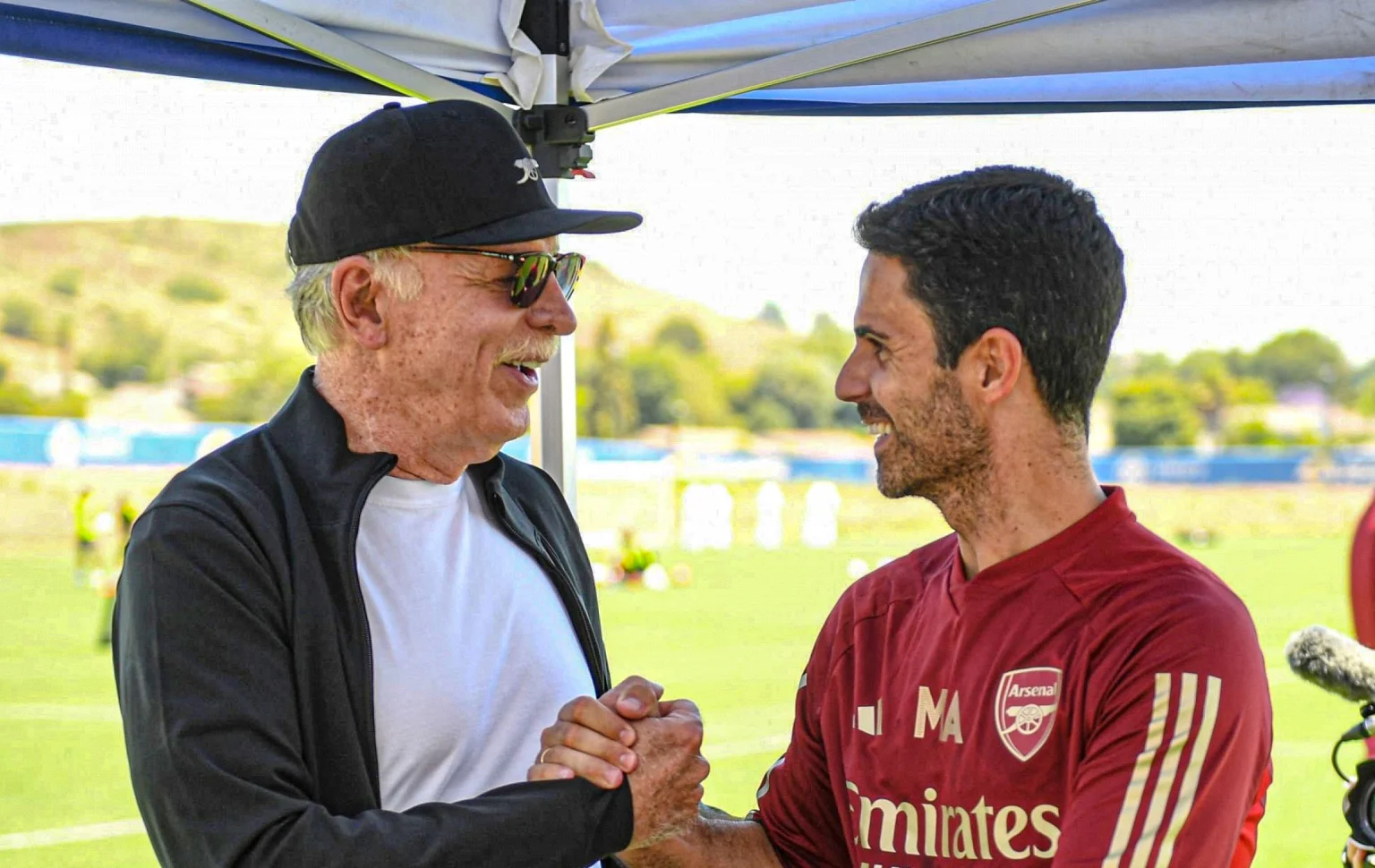The Kroenke family is reportedly making strategic moves akin to those of the LA Rams that could bring in £84 million in revenue for Arsenal

Kroenke Sports and Entertainment (KSE), the majority shareholders at Arsenal, are making strategic moves to generate more revenue for the club in the coming years. Drawing parallels with the group’s other franchises in the United States, there are suggestions that the owners may be looking to implement new strategies with Arsenal.
Recent developments in the United States provide significant insights into Stan and Josh Kroenke’s behind-the-scenes plans for Arsenal. Stan Kroenke, who took full control of the Gunners in 2018, has since taken a backseat role, delegating operational responsibilities to his son, Josh.
The Kroenke family’s KSE group commands assets worth over £10 billion, making them the second-richest sports ownership group in the world. Most of their wealth is concentrated in the United States, where they own franchises in American football, ice hockey, basketball, and Major League Soccer.
One of the most controversial episodes in KSE’s history occurred in 2016 when the company’s NFL team, the St. Louis Rams, relocated to Los Angeles. This move, while unpopular in St. Louis led to significant sporting success, with the LA Rams winning the Super Bowl in 2022.
Kroenke also financed the £4.3 billion construction of the SoFi Stadium, the Rams’ world-class home ground, where Arsenal will play Manchester United in a friendly later this summer.
The move from St. Louis did not sit well with local authorities, who had invested heavily in efforts to keep the franchise in the city. According to local outlet Griffon News, a review into the failed attempt to retain the Rams highlighted the lengths to which Kroenke went to seize a better commercial opportunity. The city eventually reached a £625 million settlement with the NFL after the Rams left.

This history demonstrates Kroenke’s willingness to pursue lucrative opportunities, and it appears he has similar ambitions for Arsenal. Rather than relocating the team, which would likely be blocked by the incoming independent regulator, Kroenke aims to gradually increase the number of matches played abroad, particularly in the United States.
One key opportunity is the expanded 32-team Club World Cup, which has the full support of Arsenal. Although the European Super League failed, Kroenke was a key advocate for it, indicating his interest in globalising Arsenal’s brand and revenue streams.
Initially, it was believed that a team winning the expanded Club World Cup could earn up to £84 million in prize money. This would be transformative for Arsenal, nearly matching their total earnings from last season’s Champions League. However, FIFA appears to have overestimated potential revenue from TV rights, with talks with Apple about a streaming deal stalling. As a result, FIFA has had to reconsider the financial incentives offered to clubs.
Arsenal will not participate in the inaugural version of the expanded Club World Cup next year, with Manchester City and Chelsea representing England. However, given their recent on-pitch resurgence, Arsenal is expected to be a contender in future editions of the quadrennial event, positioning themselves to capitalise financially.
The Kroenkes’ strategy for Arsenal seems to involve leveraging international opportunities to boost the club’s revenue, reflecting their broader approach to sports franchise management in the United States.